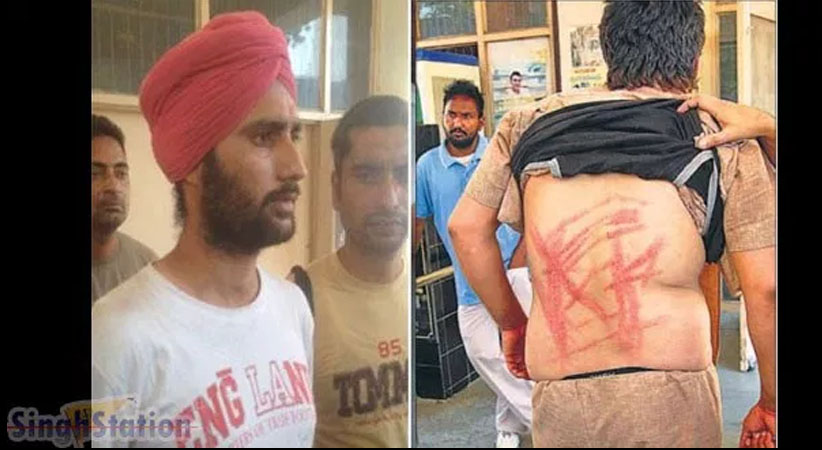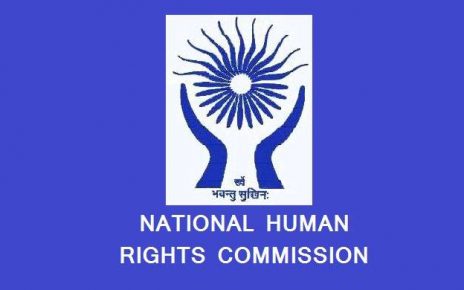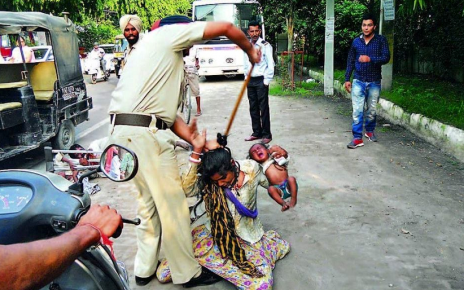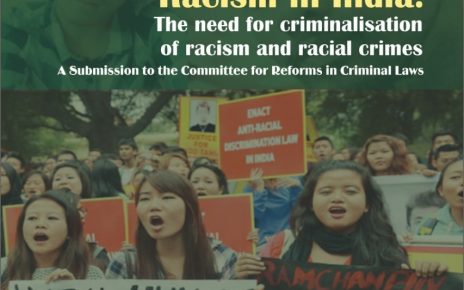New Delhi, 26 June:
The National Campaign Against Torture (NCAT) in its “India: Annual Report on Torture 2019” released today on the occasion of the International Day in Support of Victims of Torture stated that a total of 1,731 persons died in custody during 2019 i.e. death of about five persons daily. These included 1,606 deaths in judicial custody and 125 deaths in police custody.
Out of the 125 deaths in police custody, Uttar Pradesh topped with 14 deaths, followed by Tamil Nadu and Punjab with 11 deaths each; Bihar with 10 deaths; Madhya Pradesh with 9 deaths; Gujarat with 8 deaths; Delhi and Odisha with 7 deaths each; Jharkhand with 6 deaths; Chhattisgarh, Maharashtra and Rajasthan with 5 deaths each; Andhra Pradesh and Haryana with 4 deaths each; Kerala, Karnataka and West Bengal with 3 deaths each; Jammu & Kashmir, Uttarakhand and Manipur with 2 deaths each; and Assam, Himachal Pradesh, Telangana and Tripura with 1 death each.
Out of the 125 deaths, 93 persons (74.4%) died during police custody due to alleged torture/foul play while 24 persons (19.2%) died under suspicious circumstances in which police claimed they committed suicide (16 persons), illness (7 persons) and injuries (1 person) while the reasons for the custodial death of five (4%) persons were unknown.
“Torture is perpetrated to extract confession or bribes and torture methods used in 2019 included hammering iron nails in the body (Gufran Alam and Taslim Ansari of Bihar), applying roller on legs and burning (Rizwan Asad Pandit of Jammu & Kashmir), ‘falanga’ wherein the soles of the feet are beaten (Rajkumar of Kerala), stretching legs apart in opposite side (Rajkumar of Kerala), hitting in private parts (Brijpal Maurya and Lina Narjinari of Haryana), electric shock (Yadav Lal Prasad of Punjab and Monu of Uttar Pradesh), pouring petrol in private parts (Monu of Uttar Pradesh), applying chilly power in private parts (Raj Kumar of Kerala) beating while being hand-cuffed (Sajith Babu and Rajesh of Kerala), pricking needle into body (3-year-old minor of Tamil Nadu), branding with hot iron rod (3-year-old minor of Tamil Nadu), beating after stripping (Mohammed Tanveer and Lina Narjinari of Haryana; Minuwara Begum, Sanuwara and Rumela of Assam), urinating in mouth (Amit Sharma of Uttar Pradesh), inserting hard blunt object into anus (Diwakar Kumar of Bihar), beating after hanging upside down with hands and legs tied (Mahavir Bhatia of Rajasthan and Aaditya Chouhan of Madhya Pradesh), forcing to perform oral sex (Hira Bajania and 12 others of Gujarat), pressing finger nails with pliers (Anup Rabha of Assam), beating with iron rods after victim is suspended between two tables with both hands and legs tied (Aaditya Chouhan and Yashwant Chouhand of Madhya Pradesh), forced to do Murga pose or stress position (Lina Narjinari of Haryana), and kicking in belly of pregnant woman (Minuwara Begum of Assam).” – stated Mr Paritosh Chakma, Director of the NCAT.
“Out of the 125 deaths in police custody, 75 persons or 60% belonged to the poor and marginalised communities. These included 13 victims from Dalit and tribal communities, 15 victims belonged to Muslim minority community, 37 victims were picked up for petty crimes such as theft/ burglary/ cheating/ selling of liquor illegally, gambling, etc which indicate their economic status, three were farmers, one was labourer, one was a refugee, two were security guards, one was a rag-picker and two worked as drivers.” – further stated Mr Chakma.
In a number of cases, the police made all attempts to destroy incriminating evidence of torture by not conducting post-mortems or cremating the dead bodies of the torture victims in haste without conducting mandatory post-mortem examinations. The report recorded four such cases including failure to conduct post mortem in the custodial death of a 17-year-old boy (name withheld) from Tamil Nadu; hasty cremation of dead body of Hira Bajania of Gujarat to destroy evidence of torture as well as denying the families to perform the last rite as per their community’s custom; cremation of the body of Mangal Das of Tripura forcefully without conducting post-mortem examination; and hasty cremation of the body of Hanuman Koli of Rajasthan without even allowing his children to see his face for the last time without conducting post-mortem.
Women continued to be tortured or targeted for sexual violence in custody and often, the victims belonged to weaker sections of the society. During 2019, death of at least four women during police custody was reported.
Children remain vulnerable to torture and the NCRB in its “Crime in India – 2018” recorded 3,164 cases of simple hurt and grievous hurt caused by the police on 3,467 minor victims.
The prisons remained deplorable despite slews of directions given by the Supreme Court of India in September 2017 to improve living conditions in prisons and a total of 1,606 cases of deaths in judicial custody were recorded during 2019. Many deaths in judicial custody took place as a result of torture.
“There is absolute impunity to the perpetrators of torture. The National Crime Records Bureau under the Ministry of Home Affairs, Government of India in its Crime in India reports from 2005 to 2018 revealed that with respect to the death of 500 “persons remanded to police custody by court”, 281 cases were registered, 54 policemen were chargesheeted but not a single policeman was convicted as on date.”- also stated Mr Chakma.
The armed opposition groups continued to be responsible for brutal killings including through torture. The militants in Jammu and Kashmir targeted alleged police informers while the Maoists continued to be responsible for brutal killing and torture of their hostages, including after being subjected to summary trial in socalled “Jan Adalats” (Peoples’ Courts) in full public view to instil fear among the people. [Ends]




